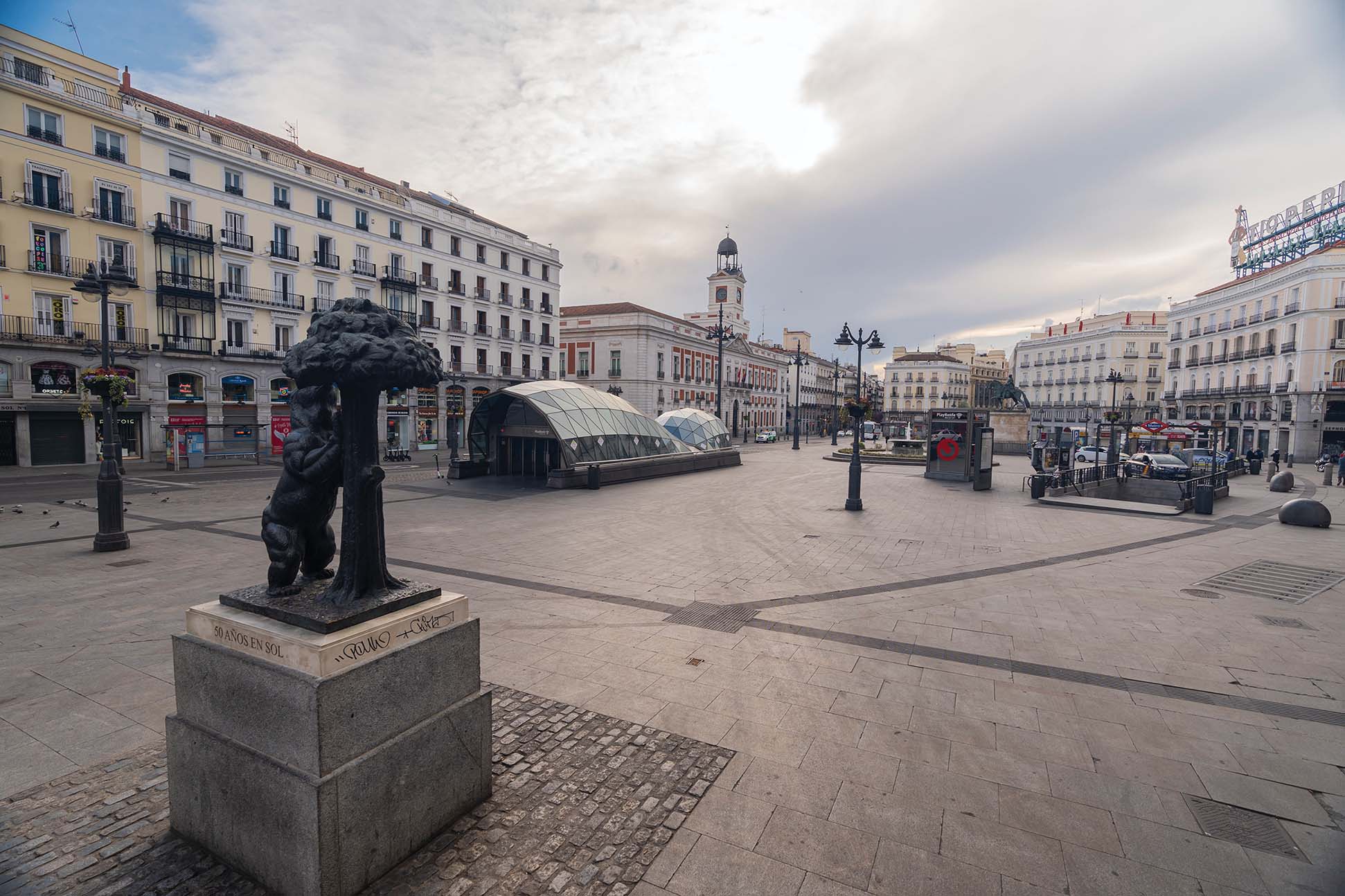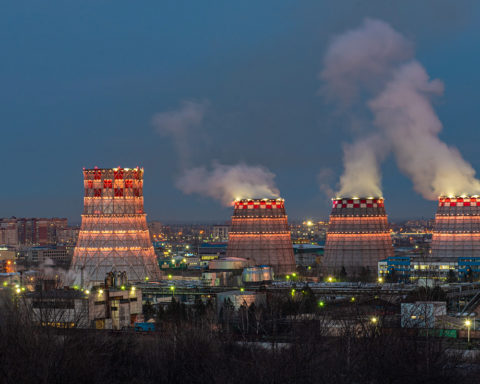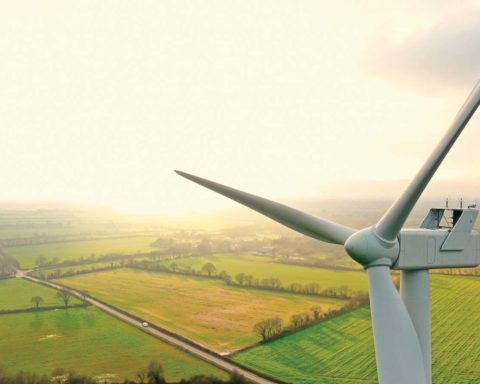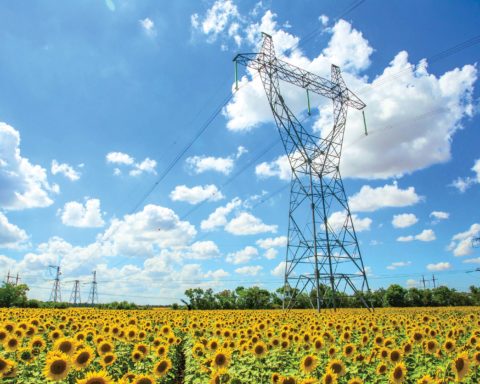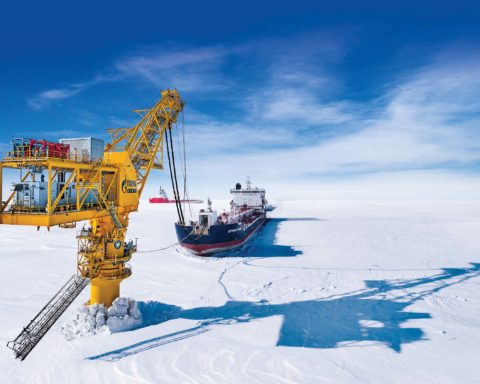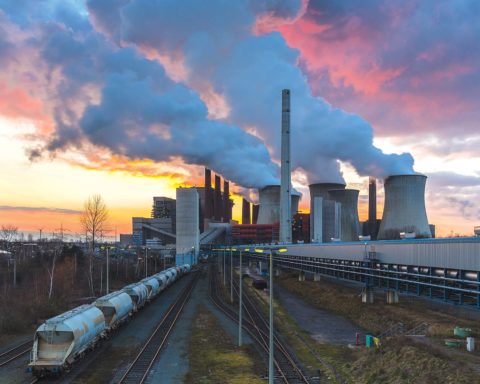Dmitry KHOLKIN
Deputy leader (co-head) of the working group,
Head of the EnergyNet Infrastructure Centre
e-mail: dvh@internetofenergy.ru
Igor CHAUSOV
Head
of analytical department,
EnergyNet Infrastructure Centre
e-mail: oyuncu@inbox.ru
Abstract. The analysis of the crisis phenomena of the early 20s of the XXI century and their impact on the ontological picture of the world, the goals and objectives of the energy transformation is carried out. Hypotheses about a new ontology of development and a new formula of energy transition are presented, their disclosure is given on examples of new energy practices. A mechanism for further practical work to test these hypotheses and turn them into a semantic platform for the energy of the future is proposed.
Keywords: sustainable development, energy transition, regions of accelerated development, positive freedom, new cosmism.
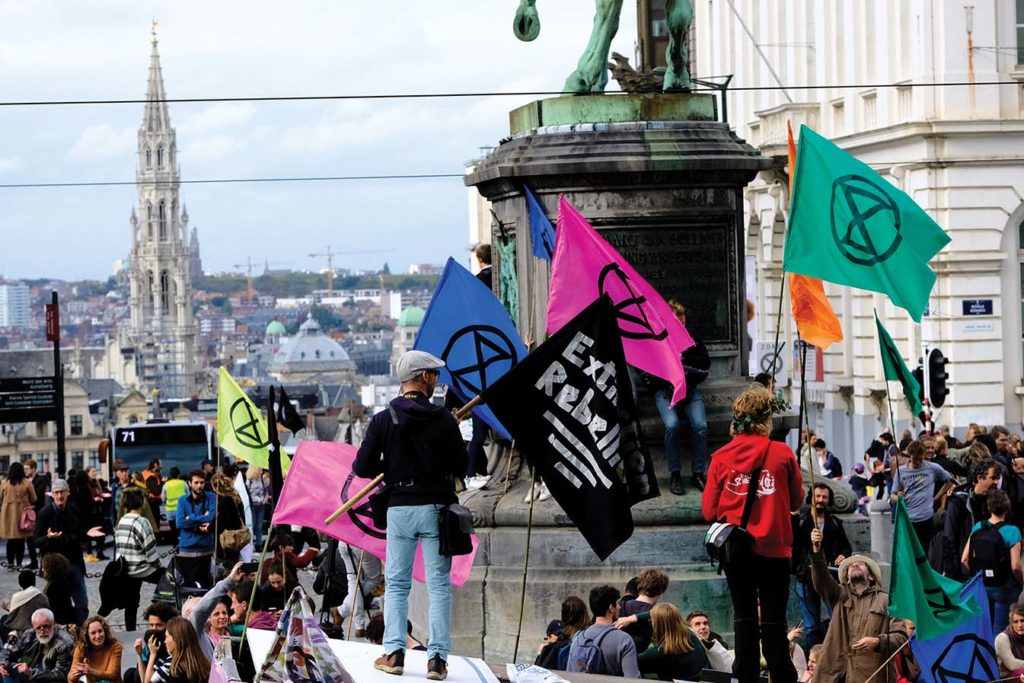
Source: Ale_Mi / Depositphotos.com
Introduction
Russian politicians, industry specialists and experts, studying the systemic issues of the energy of the future, are forced to choose between the continuation of the Soviet energy project and the Western idea of an energy transition. They are supported by different ontologies of development – basic ideas about the structure of nature, society and person, – different matrices of thinking. Many do not realize this, but, by and large, when we heatedly argue about the expediency of a renewable energy support program or about the modernization of old thermal generating capacities, in fact, there is a clash of different ontologies, different pictures of the world. The transformation of public consciousness is a complex natural process associated with the level of material well-being and the quality of social relations, the peculiarities of culture and the historical experience of this society. Apparently, due to the large difference in the answers to these questions from Western countries, Russia is very restrained in its response to the climate change agenda, shares the “green” rhetoric in a metered manner and with reservations, that is, in fact, it does not accept the ontology of sustainable development, rooted in many developed countries of the world.
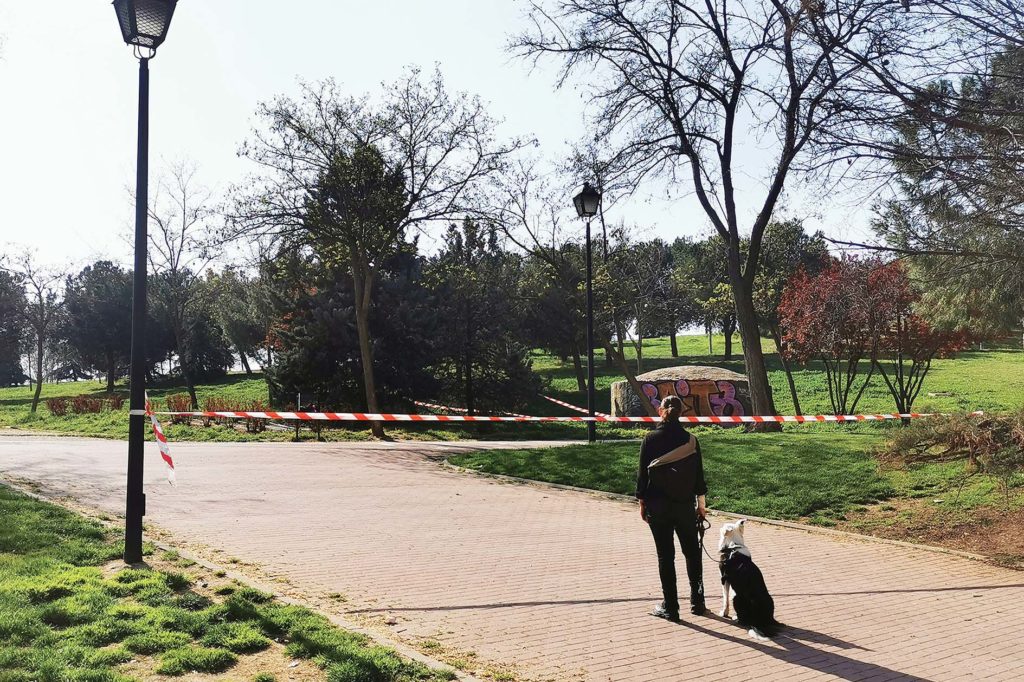
Source:
MusiuO / Depositphotos.com
At the same time, progressivism (the modernist ontology of the Soviet project) is outdated and needs at least updating. What should we do? Should we develop the decarbonization policy at full steam, or continue our line, formed at the start of the GOELRO Plan? There is no need to rush to answer, perhaps there is another way. Let’s take a closer look at the changes that are now taking place in an aggravated form around us in a crisis year. Perhaps we will see the manifestation of a new development ontology and define a suitable formula for the Russian and global energy transition strategy.
Crisis situation
The pandemic of coronavirus infection, the second wave of which is currently being experienced by the whole world, not only provoked the most significant economic recession since the Great Depression, but also apparently revealed a deep internal crisis of the existing world system. The challenge posed by the epidemic turned out to be too complex and multifactorial. It requires rapid and complex solutions, high coordination of actions at the level of private capital, state and international structures. The existing institutions were not ready for such a challenge.
The pandemic has not only become a global problem itself, but also acted as a catalyst for other crisis processes in the world. Lockdowns, freezing of economic activity and trade operations provoked the global economic crisis. According to the latest IMF estimates, the processes caused by the coronavirus will lead to a 4.4 % reduction in the global economy in 2020 [1]. This affected the global energy industry.
According to the International Energy Agency (IEA), in 2020, companies in the industry, due to falling prices and demand for oil, may miss $1 trillion in revenue, as well as $400 billion in investments. This is a drop of 20 % compared to last year [2]. One of the important consequences was the reassessment of the investment attractiveness of traditional and new energy. According to Wood Mackenzie, due to the reduction in the cost of construction of renewable energy facilities, with oil prices below $35 per barrel, investments in them even now provide no less return than investments in oil and gas projects, and at the same time are associated with lower risks [3].
It is no coincidence that in an attempt to answer the question of what will save the economy from the coronavirus crisis, Western experts increasingly agree: salvation lies in solving another global problem – climatic. During the Great Depression, the New Deal of the US President Franklin Roosevelt allowed the country’s economy to “accelerate” through investments in energy and infrastructure, now a similar role could be played by national decarbonization programs [4] and investments in the energy transition. The IEA and the IMF are calling for such large-scale investments in a joint post-coronavirus recovery plan for the global economy. According to their estimates, government incentives in 2021–2023 will help to increase investments in the energy transition to $1 trillion per year, which will ultimately create an additional 1.1 % annual growth in the world economy, provide 270 million people with sustainable access to electricity, and will also allow to open 9 million new jobs each year [5].
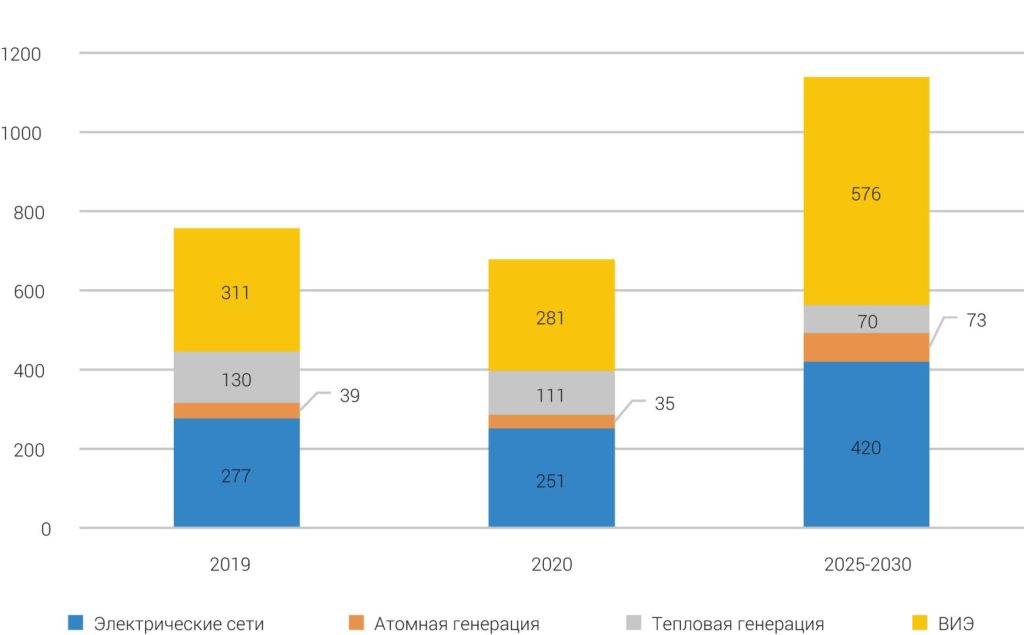
Electricity networks
Nuclear generation
Heat generation
RES
The governments of a number of countries have included substantial funding to support green activities into their economic recovery programs.
At the same time, leading economists express doubts whether the proposed decarbonization measures can solve the problem of climate warming. The International Energy Agency expects global industrial greenhouse gas emissions to be about 8 % lower in 2020 than in 2019, which is the largest annual drop since World War II. But this drop is revealing a crucial truth about the climate crisis. The problem is too big and complex to be solved by rejecting planes, trains and cars. Even if people’s lives undergo huge changes, the world will still need to reduce emissions by 90 % in order to achieve the goals of the Paris Agreement [6]. An effective combat against climate warming requires a significantly more radical transformation of the economic model of society [7], as well as a more radical involvement of advanced research and development in solving these problems [8].
It turns out that within the framework of today’s, practically Malthusian ontology of development, ecological recovery will fall into a trap: investments mobilized by states and international institutions may lead to a short-term acceleration of economic growth, but will not provide a solution to the climate problem and therefore will not have a long-term effect. This trap arises because the climate crisis is no less complex in nature and requires no less sophisticated, high-tech and cooperative solutions than the fight against coronavirus.
Ontology of blossoming complexity
The ontology of sustainable development, currently dominant in many developed countries of the world, is based on three pillars: environmental friendliness, neoliberal model of socio-economic relations and negative freedom concept.
Environmental problems, manifested as a result of industrial human intervention in the natural environment, in the 1960–1970s caused a powerful theoretical and practical movement based on the ideas of a new environmental consciousness, proceeding from the fact that humans have no right to interfere with the natural, established, self-regulating order of nature with their plans and achievements. Proponents of environmentalism insisted on a transition to a development model implying abandoning production growth, birth control, introduction of new clean technologies, and cessation of the use of non-renewable resources, that would allow moving to a stable, equilibrium state of the economy and society.

Source: coolwallpapers.me

Sustainable development
Ecologism
Neoliberalism
Negative freedom
New cosmism
Post-capitalism
Positive freedom
Blossoming complexity
Neoliberalism, which took shape as a separate branch of economics immediately after the end of World War II, was based on the Keynesian model dominating at that time, which defended the ideas of a strong state, high taxes and a reliable social protection system. Against the background of totalitarian regimes, it proposed an attractive system of social technologies that allow, without excessive costs, to coordinate the interests of divided individuals with their different desires. One of the factors of attractiveness of neoliberalism was that it proposed a clear and simple concept of personal freedom, which consisted in the absence of external restrictions and violent intervention of other people (this concept is commonly called negative freedom [9]). A short expression of this concept was the statement “I am not a slave to anyone”. At the end of the 20th century, the combination of environmentalism, neoliberalism and negative freedom turned out to be in demand and became the basis for the transformation of world politics and economy.
However, 2020 has exposed the weaknesses of the sustainable development ontology. Environmentalism, which implies adaptation to nature, neoliberalism, which demonstrates the lack of effective tools for mobilizing the economy and coordinated solution of global problems, negative freedom that perpetuates inequality in the world of the ascetic cult of managing depleting resources, as well as pervasive digital control – all this gives no hope of solving the problems of climate change without simplifying socio-economic life.
Humanity needs a new approach, which, instead of a palliative policy of self-restraint, will offer an effective solution to global problems based on the advanced achievements of science, which opens up a bright future for humanity. It will provide each person with an opportunity for self-realization, different from post-apocalyptic survival. On the basis of various foresight studies and the positions of leading intellectuals, it can be assumed [10] that the key components of the new ontology of development will be a new cosmism, post-capitalism and positive freedom.
Global problems of human security and the establishment of control over
the climate change situation will be resolved in the context of the ideas and
approaches of the new cosmism (this worldview will take a lot from Russian
cosmism, but at the same time it will be qualitatively different from it). From
the standpoint of cosmism, the problem of global climate change is turning into
the task of terraforming the Earth. The question is not how to eliminate
greenhouse gas emissions into the atmosphere, but how to create a
geotechnological system for regulating the concentration of these gases in the
atmosphere. Within the framework of the paradigm of the new cosmism, man
regains the right to interfere with nature on a planetary scale [11], since
such intervention is the only way to effectively solve environmental and
climatic problems.
The organization of society will be transformed on the basis of the approaches of the so-called post-capitalism. Economic relations will be replaced by robotic platforms, a person will be freed from inevitable and necessary routine labor. This will not happen in one moment; it will take a long era with many stages of cancelling transactions of a certain type using digital and social technologies [12].
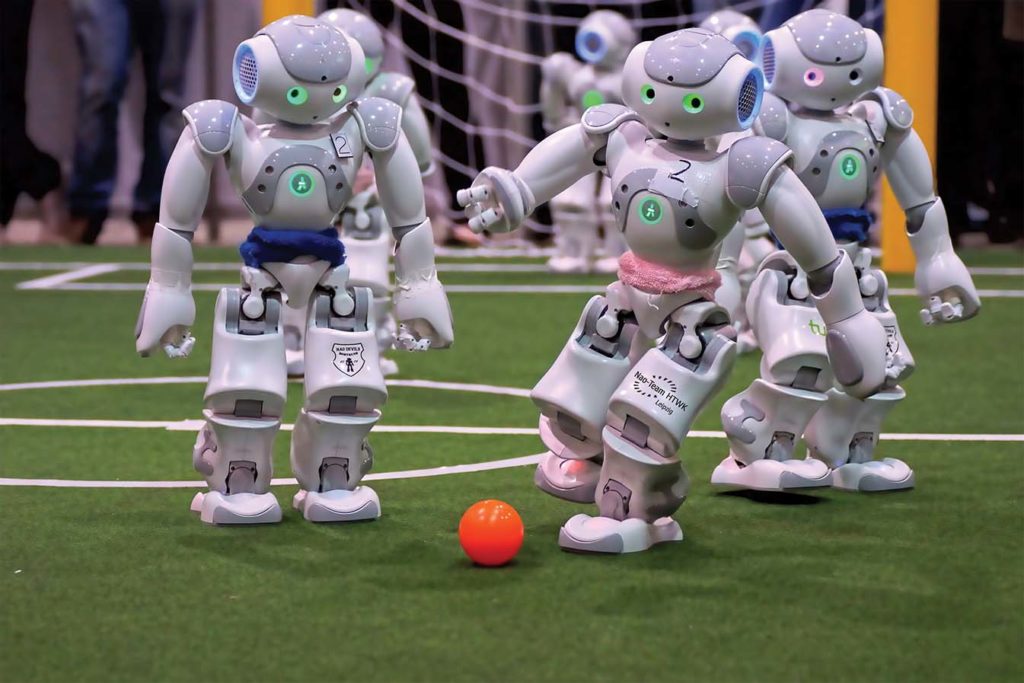
Source: электроконструктор.рф
It is worth noting that in this context, labor turns from a forced, non-equivalent exchange of work for money into the right to voluntarily create goods by virtue of internal desire, that is, into a form of active creativity.
A positive concept of freedom will prevail, characterized by the ability and availability of resources to realize the individual’s own potential. This concept is inherent in the statement “I am my own master”, besides, its integral part is the participation of citizens in management or in voluntary cooperation. The driving force of cooperation and exchange is not trade as a form of unequal exchange, but the desire to create and receive, as a result, a more complex world saturated with meanings and possibilities.
In contrast to the ontology of sustainable development, leading to a simplification of the world, the new ontology should confidently lead humanity along the path of complicating the social life of society. Using the metaphor of the Russian thinker Konstantin Leontiev, the new ontology should return humanity to the path of blossoming complexity.
Positive agenda for the energy transition
Many developed countries of the world implement the energy transition scenarios. This concept is focused on the large-scale use of renewable energy, the development of distributed energy and prosumers, the widespread use of digital controlled devices in the electric power industry that provide the ability to implement intelligent power system control based on machine-to-machine (M2M, IoT) interaction. The compact expression of the energy transition can be reduced to the 3D formula: Decarbonization, Decentralization, Digitalization.
This concept was formed and turned into a guiding policy of the
developed countries of the world that share the ontology of sustainable
development. It expresses the values and principles of this ontology.
Decarbonization is a response to treating nature as a force that transcends
humanity to which one must adapt. Decentralization is a natural result of the
spread of the neoliberal economic model of the market of many business entities
with minimal government regulation to the electric power industry. And
digitalization, aimed at replacing people with machines or controlling people
by machines, is a consistent embodiment of the concept of negative freedom,
which creates a feeling of an individual’s protection from the influence of
other people due to the formation of digital privacy, provided by the digital
control of other people around me. In the light of this statement, the semantic
synonym for digitalization is the term “dehumanization”. It is noteworthy that
3D components are formulated through negation, an indication of what should be
abandoned, and not what should be strived for.
For the new development ontology, the 3D concept is not working, it does not set the key principles of energy infrastructure in a world of blossoming complexity. To derive a new formula for the transformation of energy, it is possible to determine what useful property each of the 3D components will turn into at the next stage of development. But you can try to grasp the new vision in its entirety, designing the image of energy for extraordinary circumstances, for example, for the colonization of Mars, especially since this case fits well into the new ontology of development. The terraforming and industrial development of the planet will require large energy capacities of nuclear energy, the gradual development of settlements will require modular power plants of medium and low capacity, powered from the environment and accumulating energy in the form of hydrogen, to prevent a potentially high accident rate of the infrastructure, it will be required to use multiple redundancy, controlling the operating modes of such a complex system will require artificial intelligence, and ensuring the rapid and repeated reorganization of the energy system will require the creative participation of various people in its design and planning. Obviously, the principles of decarbonization, decentralization, digitalization are not useful tips in this situation. Much more useful are their dialectical continuations – 3C: Co-sufficiency, Co-organization, Co-development.
The development of renewable energy sources has been a huge achievement of the decarbonization policy. Carbon neutrality is an important property of these power sources. But, perhaps, their other property is even more important – the ability to extract energy from the external environment at any point in space. Considering the fundamental stochasticity and distribution of this type of sources, there will always be an important problem of mutual exchange of energy resources between the structural elements of the system. Co-sufficiency is the principle of mutual and collective provision of energy resources that can be transformed into various useful forms based on universal carrier (electricity, hydrogen), in a system where each structural element contributes to the maintenance of accumulation and flexible use of energy. This principle does not focus on the use of renewable energy sources, especially wind and solar resources that are not always and not everywhere available, but presupposes an emphasis on energy modularity and collective participation in the efficient production, distribution and use of energy resources, including from concentrated capacities.

Source: Jukov / Depositphotos.com
Decentralization has done a useful job of breaking the paradigm of centralized hierarchical systems.

3D
Decarbonization
Decentralization
Digitalization
Co-sufficiency (со-обеспечение)
Co-assembly (со-организация)
Co-development (со-развитие)
3С
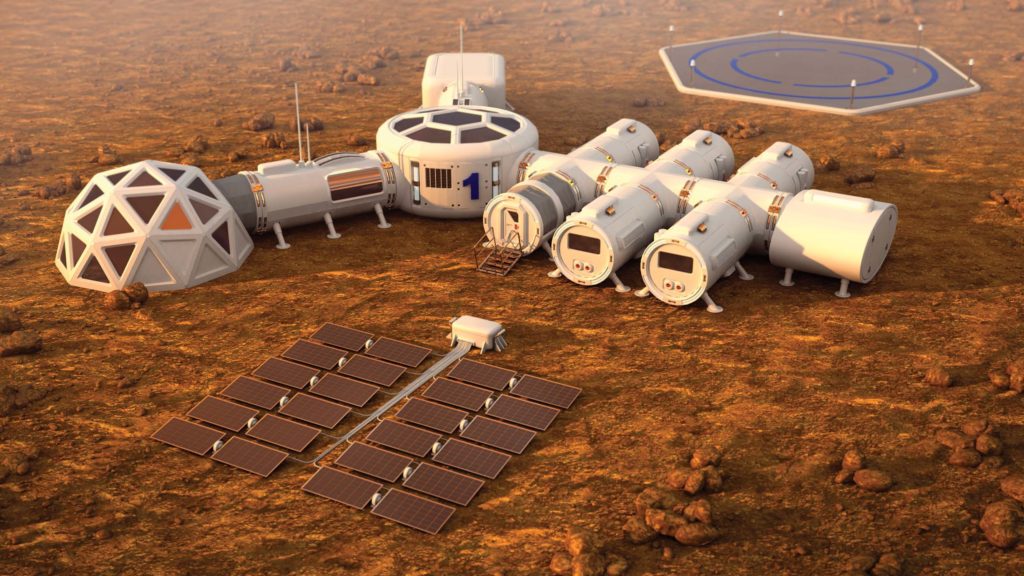
Source: lookaround / Depositphotos.com
But it will also be valuable to find distributed energy in a large common ecosystem, as well as its ability, in near real time, to carry out coordinated management and reorganization of infrastructure. Co-organization is the principle of coordinated actions of a set of dissimilar objects, which, due to their coherence, lead to the appearance of a synergistic effect: the actions of these objects as a whole achieve an effect greater than the sum of the actions of all objects would have if they acted alone.
Modern digitalization processes create only digital infrastructure and control systems that can cope with simple tasks for stationary conditions of the system functioning. If we talk about the world of blossoming complexity, about flexible and dynamically developing settlements and industrial facilities, about the need for rapid deployment and restructuring of infrastructure for new tasks, then there is a need to integrate people and various cyber-physical systems into the overall development management loop [13]. Here, a person, armed with the values of positive freedom and motivated for creative self-realization, is assigned the role of a task setter and a validator of solutions found by smart systems. Co-development is the principle of organizing human-machine systems, which allows, when working with more and more complex tasks, to complicate the structural connections in these systems based on internal resources, horizontal connections and distributed collective decision-making.
Thus, the world of blossoming complexity requires a concept of energy
development, which uses the achievements of the 3D concept, but sets itself
positive tasks, takes the next step, leading to the acquisition of new useful
properties by energy systems.
This next step of the energy transition is described by the 3C formula, which involves the creation of an infrastructure for complex and flexible cooperation of smart energy machines and creative people.
New energy practices of the 3C concept
And now, if we return from Mars, then we will find energetic practices on Earth, which are actually the implementation of a new ontology of development. In particular, carbon-free autonomous energy systems, energy flexibility markets, energy communities – these and other practices embody new approaches to energy transformation based on the 3C principles.
The principle of co-sufficiency is most clearly manifested in the operation of carbon-free autonomous hybrid power systems (AHPP) with a modular structure. An example of such a system is the Russian project of the international Arctic station Snezhinka, implemented by the Institute of Arctic Technologies of the Moscow Institute of Physics and Technology with the support of the EnergyNet infrastructure center. This project will be implemented in Yamal under the Russian chairmanship of the Arctic Council under the auspices of the Sustainable Development Working Group in the Arctic (SDWG)”.
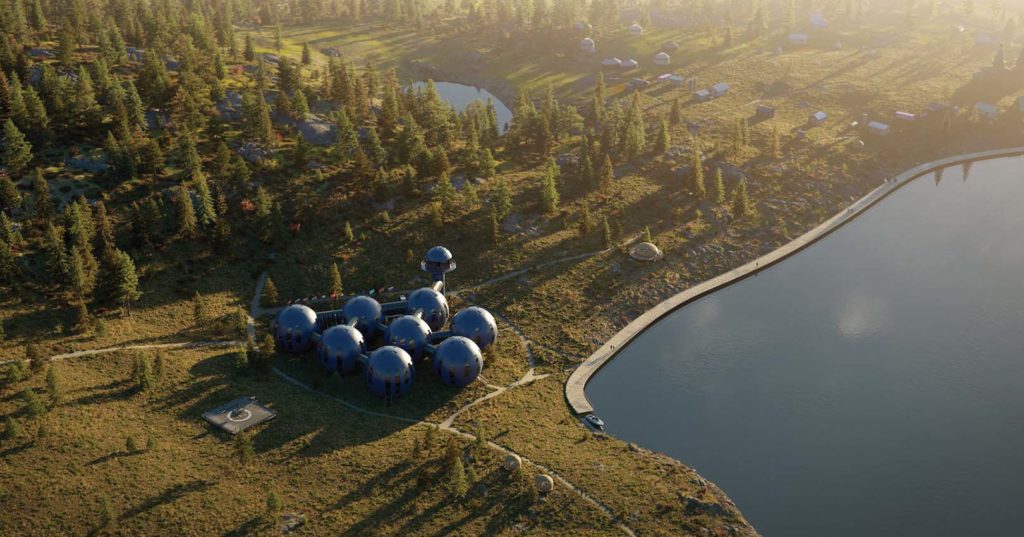
A feature of the Snezhinka station is its modular structure, consisting of structural modules each of which contributes to the provision of autonomous power supply through generation based on renewable energy sources or energy storage, as well as through participation in flexible management of the use of this energy. This is necessary so that the station can effectively do without the use of imported hydrocarbon fuel. In the target vision, the station modules form a network of horizontal connections to which more and more new modules can be docked. A similar structural idea is used in the construction of orbital space stations.
The more modules are assembled into a common structure, the greater opportunities for autonomous power supply are gained by all modules, and this increase is non-linear. The unity of this infrastructure is ensured not only by electrical connectivity, but also by a universal zero-carbon fuel – hydrogen, which will be used for the long-term accumulation of energy produced on the basis of renewable energy sources, its transformation into electricity, heat, fuel for vehicles and robotics. It is hydrogen that creates the conditions for stable and reliable operation of such a complex, stochastic, developing power system, including mobile components.
An increasingly widespread new energy practice that implements the
principle of co-assembly is platform management of aggregated sets of
distributed energy objects – sources of power and flexibility.
This practice can be implemented both at the local level within microgrids, where such platforms form a co-organizing energy community, and at the national and even regional level of large power systems, where platform solutions are used to create virtual power plants, integrate into wholesale energy storage markets and manage load. Grid and home energy storage devices, including those connected to rooftop solar panels, charging stations for electric vehicles, small gas generation, controlled loads, for example, home water heaters and air conditioners connected to the Internet of Things, are combined on the platform into a dynamically changing set of energy flexibility sources – flexibility pool – and provide appropriate services to system operators of power systems, grid companies, large generation (especially wind), microgrid operators. An example of this type of platform already implemented is the UK’s Piclo Flex, the world’s first energy flexibility trading platform undergoing a national pilot. Projects for the development of such a platform are underway in Russia as well, within the framework of the EnergyNet STI.
A platform of this type is not just an automated control system, since it does not involve directive management of sources of flexibility, but market interaction through the conclusion of short-term self-executing contracts. The effect of the platforms operation is manifested in the appearance of available regulation capacities in the power system, which can be used to control the frequency, reduce prices on the wholesale market, expand narrow sections, increase system reliability and stability margin, optimize the utilization of generating capacities, increase the load factor and the share of renewable energy sources in energy balance and many other tasks of optimal control of power systems of any scale.
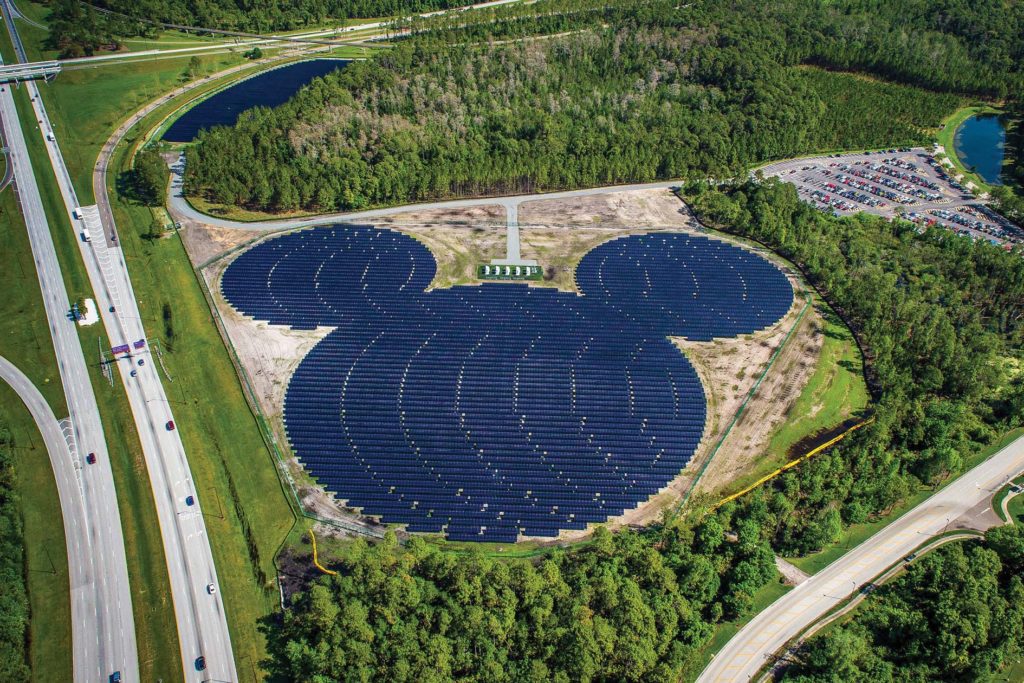
Source:
cleanenergy.org
The principle of co-development means an even more developed level of cooperative behavior than in the previous examples, leading not only to obtaining operational results, but to the achievement of long-term effects associated with the complication of the very set of interacting objects, the solution of new problems.
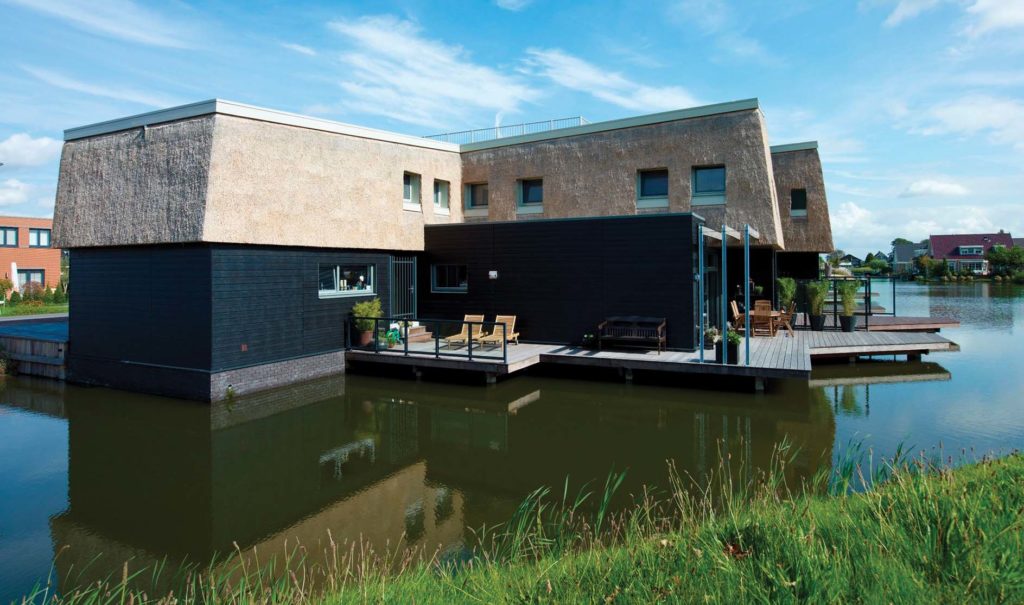
Source: magazindomov.ru
This principle can be implemented using collective planning and design technologies that provide a combination of deep engineering knowledge and high technologies with the ability to take into account many interests and opinions of communities and individuals without the involvement of specialized institutions. Particular cases of the implementation of this principle are some energy communities, partially switching to platform crowdfunding mechanisms (including those using blockchain) as an alternative to bank loans and investments. They use the levers of direct democracy on a local scale in order to build collective projects to develop the infrastructure of their communities. Examples of energy communities that implement the principle of co-development are the ecological communes-settlements – Aarde Huizen [14], Schoonschip [15], De Ceuvel [16] and Republica Papaverweg [17] in the Netherlands, using digital solutions developed by Spectral and Metabolic. These energy communities form local co-developing groups that independently generate infrastructural solutions for original forms of life.
Territories of accelerated development of new energy
The development of new energy practices and technologies based on the 3C
concept and in the context of a new ontology of development require special
mechanisms – a kind of incubators for a new energy mode, new energy and
technological markets [18]. Russia is a large country, its different regions
can become sites for the “cultivation” of energy practices that are reference
for different countries of the world.
Depending on the special geoclimatic profile of each region, its economic specialization, socio-cultural characteristics, conditions can be formed for the emergence and accelerated evolution of a new way of life and activity, as well as a suitable energy infrastructure.
For example, the Yamalo-Nenets Autonomous Okrug can be used to develop the practice of autonomous zero-carbon settlements for the Arctic zone, a hydrogen society can be formed on Sakhalin, and Sirius, which is the currently created territory of federal subordination, can serve as a youth city of the future with a full-fledged Internet of energy. Such territories, proposed by the administrations of the constituent entities of Russia and municipalities as sites for the formation of a desirable future, could be selected on a competitive basis and supported, including by the federal government, state-owned companies and development institutions.
Conclusions
The current year has become a difficult year, in which a complex of different crises has formed into a single puzzle. This forces us not only to solve the problem of overcoming these crises, but also the problem of creating our own version of a new normality, which goes back to the need to form and assign a new development ontology. The currently dominant ontology of sustainable development in the economically developed countries of the world, formulated in extreme cases as “Stop and survive!”, is acceptable, but only in the absence of other options that offer a realizable paradigm of upward development. According to our hypothesis, the new ontology of development should be based on the meanings and approaches of the new cosmism, post-capitalism and the positive concept of freedom. Within the framework of the new ontology, it becomes possible to propose a new concept of the energy of the future, offering, in contrast to the energy transition based on the 3D principles, a positive and constructive agenda. This concept can be expressed by the 3C formula, which stands for Co-sufficiency, Co-assembly, Co-development. Energy systems of various scales, built on such principles, will be in demand during the colonization of Mars, and in the development of the Arctic, as well as in solving the problems of climate change, and in electrification and catching up with the development of third world countries. This new formula for the energy transition could become a global initiative of Russia, become the basic principle for the progressive high-tech development of national energy, as well as the basis for large-scale technologically sustainable exports. It is necessary to start small – to implement programs for the accelerated development of new energy in interested regions, embodying and demonstrating complex solutions for several typical situations based on the new concept of the energy transition.

using only zero-carbon energy in 2023
Source: Maugli / Depositphotos.com
References
1. URL: https://www.imf.org/en/Publications/WEO/ Issues/2020/09/30/world-economic-outlook-october-2020
3. URL: https://www. greentechmedia.com/articles/read/oil-price-means-renewables-are-a-better-investment-for-the-majors
4. URL: https://www.thenational.ae/business/comment/ investing-in-energy-and-projects-helped-pave-the-way-out-of-the-great-depression-it-can-now-help-build-a-greener-world-1.1014159?utm_source=telegram.me&utm_medium=social&utm_campaign=www.thenational.ae-business-comm
5. URL: https://www.iea.org/reports/sustainable-recovery
6. URL: https://www.economist.com/leaders/2020/05/21/ countries-should-seize-the-moment-to-flatten-the-climate-curve
7. URL: https://www.newstatesman.com/politics/economy/2020/05/ top-economists-warn-uk-not-repeat-austerity-after-covid-19-crisis
8. URL: https://www.thenewatlantis.com/publications/after-climate-despair
9. Берлин И. Две концепции свободы.
10. Холкин Д. В. Утопия как гипотеза о человечестве. – URL: https://medium.com/internet–of–energy/6a76c3c7a0bc, https:// medium.com/internet–of–energy/a500d84c5671
11. Холкин Д. В. Постантропоцентричная недоутопия. – URL: https://medium.com/internet–of–energy/4da043459d49
12. Холкин Д. В. СБЧ. Энергетика в эпоху трансакционных машин. – URL: https://medium.com/internet–of–energy/589438d7ddf5
13. Бушуев В. В. Введение в Энергологию.
14. URL: https://www.aardehuis.nl/nl/
15. URL: http://www.spaceandmatter.nl/schoonschip
16. URL: https://deceuvel.nl
17. URL: https://www.republica.amsterdam/en/home
18. Холкин Д. В., Громыко Ю. Возможна ли инженерия истории? – URL: https://medium.com/internet–of–energy/ed20b90c2dbb

